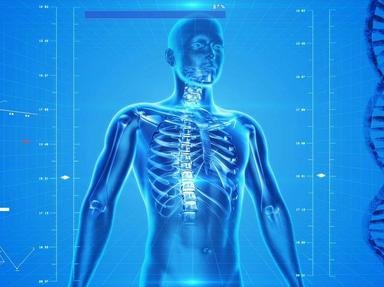Quiz Answer Key and Fun Facts
1. The muscle called the masseter is found in which part of the body?
2. In our blood there are four components: red blood cells, plasma, white blood cells, and platelets. What do platelets do to blood?
3. What is a synonym of 'voice box?'
4. If you have a brown iris, then what part of your body is brown?
5. Which of these is a name for the first set of teeth, which we lose later?
6. Many people don't like getting vaccinations. Who invented them?
7. Which scientist came up with the auditory process in mammals?
8. In order of size, where does the liver rank in the human body?
9. If you were farsighted what would you have trouble doing?
10. What part of the body stores waste in liquid form?
Source: Author
happy1234512
This quiz was reviewed by FunTrivia editor
rossian before going online.
Any errors found in FunTrivia content are routinely corrected through our feedback system.


